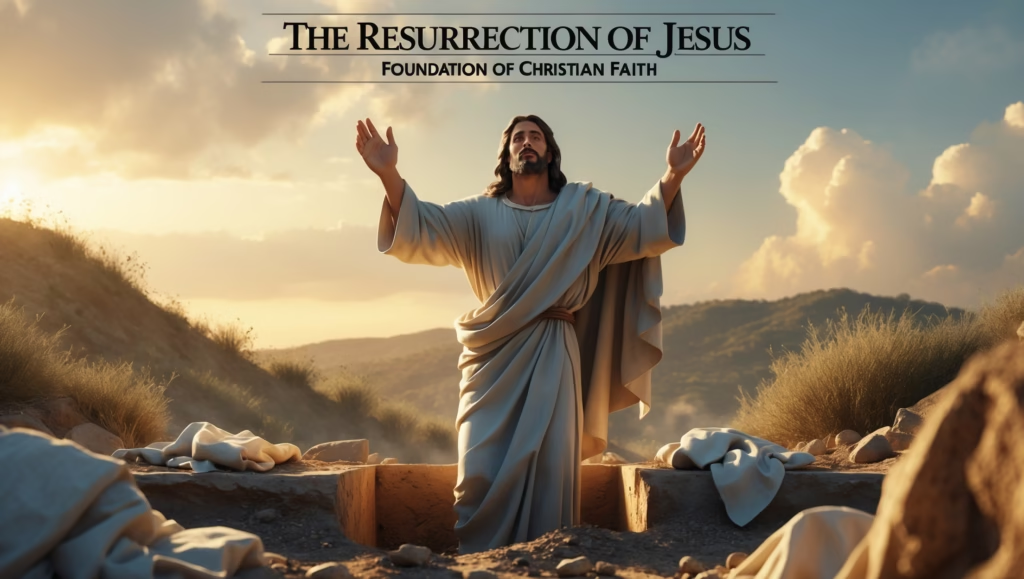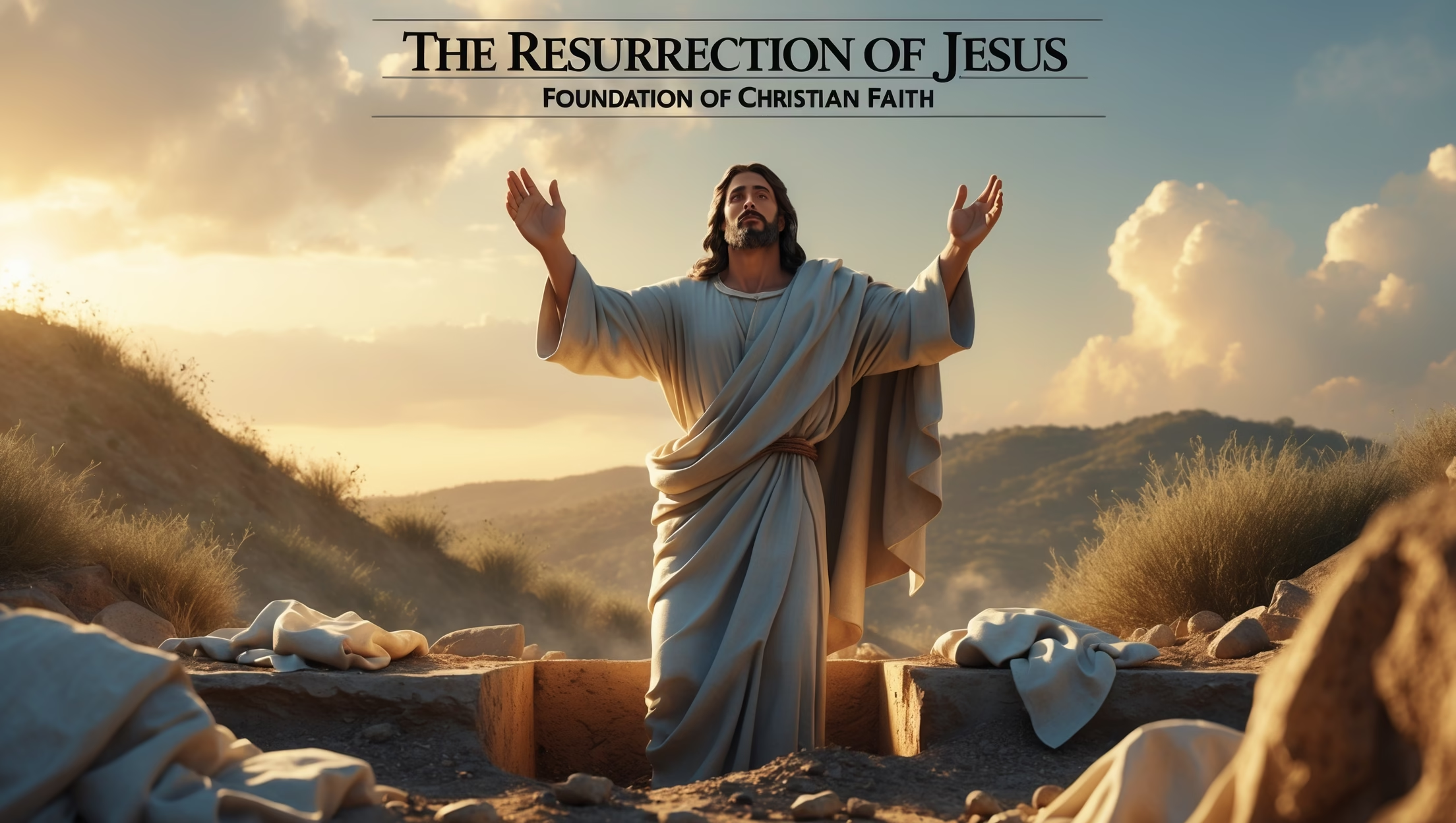Introduction
The resurrection of Jesus Christ stands as the cornerstone of Christianity, a singular event that validates His divine identity and affirms the truth of His teachings. Without this moment, the narrative of Jesus’ life, death, and promises would remain incomplete, leaving His mission unproven. His triumph over death demonstrates God’s ultimate power and affirms the efficacy of His sacrificial love. Beyond its theological significance, the resurrection provides hope, assurance, and a model for life for believers. It is both a historical event and a spiritual reality, shaping the way Christians understand salvation, eternal life, and their purpose on earth.
The resurrection also addresses the deepest human fears: death, meaninglessness, and separation from God. By conquering death, Jesus not only fulfills prophecy but also provides a tangible assurance that God’s kingdom is breaking into the present world. This event bridges the gap between divine promises and human experience, giving believers a living hope that is anchored in reality.

Eyewitness Accounts
The credibility of the resurrection is reinforced by the detailed eyewitness testimonies recorded in the Gospels and referenced by the Apostle Paul. The first witnesses were women, including Mary Magdalene, Joanna, and Mary the mother of James, who discovered the empty tomb early on the first day of the week. Their presence as the first witnesses is particularly significant, given the cultural context in which women’s testimonies were often undervalued.
Later, Jesus appeared to His disciples multiple times. He appeared to Mary Magdalene outside the tomb, walked with two disciples on the road to Emmaus, and showed Himself to the gathered disciples in a locked room. He even invited them to touch His wounds, confirming that He was not a ghost but physically resurrected. Paul highlights in 1 Corinthians 15:6 that Jesus appeared to over five hundred people at once, most of whom were still alive when he wrote, providing a reliable historical reference for verification.
These testimonies were not isolated experiences. They included groups, individuals, and repeated encounters that collectively demonstrate consistency and reliability. The transformation of the witnesses, from fear and despair to bold proclamation, also supports the authenticity of the event. Eyewitness accounts not only testify to the reality of the resurrection but also serve as a foundation for faith that transcends centuries.
The Power of the Resurrection
The resurrection reveals the magnitude of Jesus’ victory over sin, death, and the forces of evil. By rising from the dead, Jesus validated His teachings and the purpose of His sacrificial death. It demonstrates that sin, suffering, and death do not have ultimate authority over humanity.
The resurrection also illustrates God’s sovereignty over creation. Nature, life, and death itself are subject to His power. Jesus’ rising from the grave shows that God can transform hopeless situations, redeem brokenness, and bring life from death. This cosmic significance of the resurrection extends beyond individual salvation to encompass all creation, offering hope that God’s kingdom will ultimately restore and reconcile the world.
Furthermore, the resurrection establishes Jesus’ role as the eternal mediator between God and humanity. It confirms that His death on the cross was fully accepted by God as the atoning sacrifice for sins. The resurrection is the divine seal of approval, assuring believers that faith in Jesus is neither misguided nor futile.
Transformation of the Disciples
The impact of the resurrection on Jesus’ followers was immediate and radical. The disciples, who had been paralyzed by fear and confusion after the crucifixion, became bold witnesses willing to face persecution, imprisonment, and death for the message they had received. Peter, once hesitant and denying Jesus, preached powerfully at Pentecost, demonstrating the transforming power of encountering the risen Christ.
Thomas, initially skeptical, declared “My Lord and my God!” after witnessing Jesus’ wounds, exemplifying the movement from doubt to conviction. The collective transformation of the disciples attests to the authenticity of the resurrection. Their courage, steadfastness, and willingness to die for their testimony provide compelling evidence that they genuinely encountered the risen Savior. This transformation continues to inspire believers to live boldly and share their faith despite opposition.
The Resurrection and Believers
For Christians today, the resurrection is not merely a historical fact but a source of hope, power, and guidance. It guarantees eternal life for all who place their trust in Jesus. Believers are invited to participate in the resurrection spiritually, experiencing renewal, freedom from sin, and empowerment to live holy lives.
The resurrection also affirms God’s promises and His faithfulness. It reassures believers that suffering is temporary and that God’s ultimate plan is perfect. This understanding encourages perseverance, courage, and hope in the face of trials. It also emphasizes the transformative power available to those who follow Christ: the same power that raised Jesus from the dead works within His followers to bring spiritual growth, renewal, and victory over sin.
The resurrection reshapes how Christians approach life, relationships, and mission. It calls believers to live in the light of eternity, to pursue justice, mercy, and love, and to bear witness to the living Christ in their communities. It reminds the Church that faith is not abstract; it is rooted in a real, living Savior who actively intercedes and empowers.
Living in the Light of the Resurrection
Understanding the resurrection also influences ethical and moral living. Believers are called to reflect the hope and victory of the risen Christ in their daily actions. This means showing compassion, forgiving others, serving the marginalized, and living with integrity. The resurrection provides a framework for moral courage, inspiring believers to face personal, social, and spiritual challenges with confidence in God’s ultimate victory.
Additionally, the resurrection encourages spiritual growth and worship. It invites Christians to deepen their relationship with God, celebrate the gift of life, and cultivate a heart of gratitude for the mercy and grace revealed in Jesus’ triumph over death. The resurrection becomes both a source of personal transformation and a lens through which all aspects of life are viewed.
Conclusion
The resurrection of Jesus is the foundation of Christian faith, providing undeniable proof of His divinity, validating His teachings, and guaranteeing eternal life for believers. It transforms fear into courage, doubt into conviction, and death into hope. The resurrection is both a historical event and a living reality that continues to shape the lives of millions worldwide.
By understanding the resurrection, Christians embrace a life empowered by the same divine strength that raised Jesus from the grave. It calls believers to bold faith, ethical living, and relentless hope. The resurrection is not confined to the past; it is present today, actively guiding, comforting, and transforming those who trust in Jesus as Lord and Savior.








